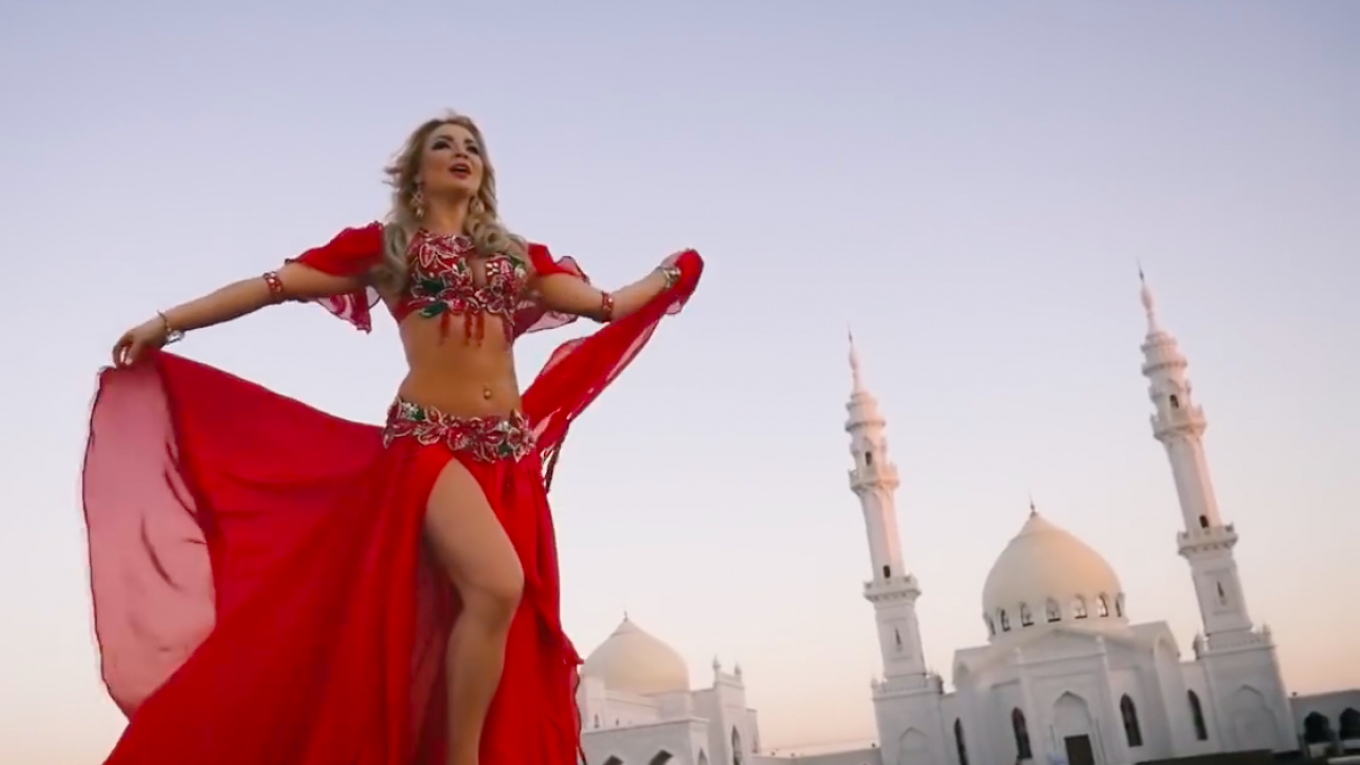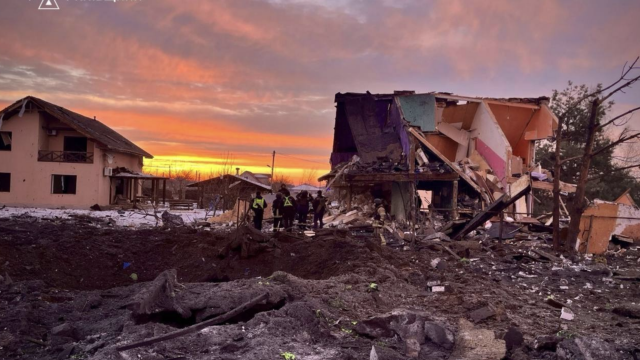State investigators in Tatarstan have opened a preliminary criminal case against the singer Rezeda Ganiullina, who yesterday released a music video where she dances in a translucent dress, riding a camel, outside the White Mosque in Bolgar, a city about 200 kilometers south of Kazan.
“Due to the fact that the woman’s actions might contain signs of a crime, as classified under Article 148 of the Russian Criminal Code (offenses against freedom of conscience and religion),” a regional investigative committee official told the Interfax news agency, “a pre-investigation check is underway.”
The chief mufti of Tatarstan, Kamil hazrat Samigullin, promptly condemned the music video, saying that “a mosque is not a place for dancing.” Another mufti in Kazan later demanded that Ganiullina remove the video and apologize to Allah.
Writing on social media, Ganiullina has apologized to people who are offended by her dancing. “This is my stage persona,” she explained. “Oriental dances are my style — they’re my speciality.”
In August 2012, Pussy Riot band members Nadezhda Tolokonnikova, Yekaterina Samutsevich, and Maria Alyokhina were sentenced to two years in prison for their “Punk Prayer" against Vladimir Putin at Moscow's Christ the Savior Cathedral. Within a year, Russian officials passed legislation outlawing actions deemed to offend religious sensibilities.
Since then, at least four people have been convicted of insulting religious people’s feelings. In Feb. 2016, a former university teacher in Orenburg was fined 35,000 rubles (about $500) for publishing an article titled “Evil Christ.” In mid-April, the same court in Yekaterinburg that just arrested Sokolovsky forced a man to undergo a psychological evaluation, after he posted a YouTube video showing him slaughtering a chicken in a voodoo ritual. In June, a court in Kirov sentenced two men to 230 hours of community service for hanging a scarecrow from a memorial cross and attaching an insulting sign.
A judge in Yekaterinburg recently released Ruslan Sokolovsky, a blogger jailed for filming himself playing Pokemon Go in a cathedral, and placed him under house arrest. Sokolovsky faces criminal charges for extremism and offending religious sensibilities. If convicted, he could go to prison for up to five years.
A Message from The Moscow Times:
Dear readers,
We are facing unprecedented challenges. Russia's Prosecutor General's Office has designated The Moscow Times as an "undesirable" organization, criminalizing our work and putting our staff at risk of prosecution. This follows our earlier unjust labeling as a "foreign agent."
These actions are direct attempts to silence independent journalism in Russia. The authorities claim our work "discredits the decisions of the Russian leadership." We see things differently: we strive to provide accurate, unbiased reporting on Russia.
We, the journalists of The Moscow Times, refuse to be silenced. But to continue our work, we need your help.
Your support, no matter how small, makes a world of difference. If you can, please support us monthly starting from just $2. It's quick to set up, and every contribution makes a significant impact.
By supporting The Moscow Times, you're defending open, independent journalism in the face of repression. Thank you for standing with us.
Remind me later.






